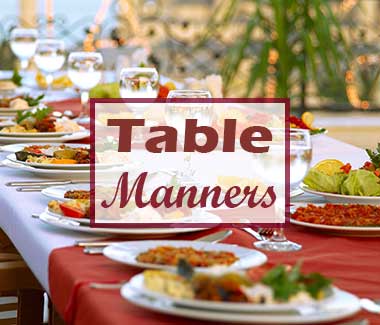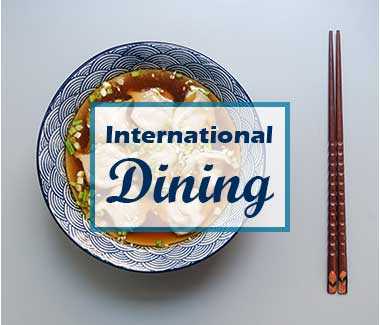Dinner Blessings
The word grace is from the Latin gratia, meaning "that which is pleasing or agreeable" or simply "thanks," a prayer that began not only as a statement of gratitude but also as a way of warding off detrimental effects the food might possess. We know that Israelites offered prayers of appreciation for the day's bounty, and undoubtedly other cultures did as well. The ancient Egyptians offered food to the gods before they began eating. In the time of the English Stuarts (16021714), gentlemen removed their hats to say grace but replaced them to eat the meal; the king was the only man who ate bare-headed. Today, grace is a short prayer of thanks given before a meal, generally after the guests are seated and before anything on the table is touched, including the napkin. However, in some faiths a blessing is given while the guests stand behind the chairs.
Although expressing appreciation for a meal does not mean affiliation with a particular faith, to show respect for the host and the occasion, when grace is said the head is bowed, regardless of one's beliefs. The custom of bowing the head in reverence began as a way to show obedience and willingness to serve, and a person of lower rank lowered his head before a person of exalted rank. However, it is not necessary to conclude grace with a religious gesture not in keeping with one's faith, such as crossing one's self.
Grace is said by one person at the table, such as the host, hostess, a family member, a relative, or a guest. Be sure that the guest will not be embarrassed giving such a prayer. Everyone at the table joins in saying amen.
Usually grace consists of a few simple words of appreciation or a short prayer. The best-known nonsectarian blessing among English-speaking Christians is very simple:
For what we are about to receive,
may the Lord make us truly thankful.
Amen.
More grace examples..


